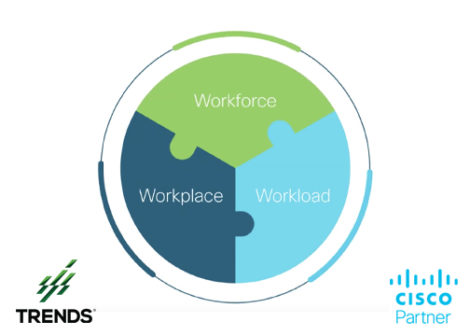Zero-trust is the new Safe
![]()
Working from home means also increasing risks that might affect your company data. The increasing productivity of this setup might be good for employees, but it can also increase companies to information security breaches like malware and phishing attacks.
Although cybersecurity is not a new concept to companies, it still remains as a threat especially to those that handle customer data. One case of data breach case is from a pawnshop company, wherein the birthdays, addresses, and source of income of 900,000 of its clients were compromised. The breach, which was reported January 19, 2019, came from their e-mail server used for their marketing operations.
Another case of control breach happened last May 2020, wherein a well-known telecommunications company’s Twitter page got hacked, exposing hackers to sensitive customer information in the account’s direct messages.
That’s why in this specially-shifting security landscape, zero trust should be implemented in the workplace – on site or even at home.
Company culture encourages trust to every employee, however as far as cybersecurity is concerned, it’s better to be safe than sorry. This is where zero trust comes in. Zero trust is basically an approach where trust is deprioritized and eventually eliminated from an organization’s network architecture. Removing trust from internal entities not only cuts down potential risks and exposure to attacks, but also future costs that come with such situations.
Simply put, at every access attempt, the zero trust model of security will ask for user verification before granting access to any application, network, or information. This lets you know who, what, and how do employees access anything within your network.
One might say, “We already practice cybersecurity among our ranks through our Virtual Private Network (VPN).” As good as that can be, VPNs technically cannot filter the employees who can access various types of data within your network, meaning sensitive information can be easily accessed as long as that person is connected to the VPN. With zero trust, you have visibility over actions like these, implementing a privilege system wherein people who only need certain data can only be the ones given access to said data.
Now more than ever, implementing a zero trust approach minimizes all risks in a work from home setup. Luckily CISCO, a market leader on the zero-trust approach, can help you in creating and enhancing security protocols within your network. With CISCO’s zero trust approach, you will be sure that your networks (and data!) are secured whenever, wherever or from whoever tries to access your network.
Zero-trust is definitely the new safe. Learn more about CISCO Zero Trust Security here.
What’s best the Zero-trust approach can be integrated to Philippine businesses locally thanks to Trends, an ICT service and solution provider who has partnered with CISCO in advocating Zero-trust as the new safe. Granted ISO 27001 Certification in 2017 for implementing best practices in Information and Security Management System (ISMS), Trends stays true to its goal of transcending business results through cost-effective and flexible solutions.
If you’re looking to add Zero-trust in your IT solutions, you can message Trends here to learn more about their offers and services: https://www.trends.com.ph/contact.html.
INQUIRER.net/CER
